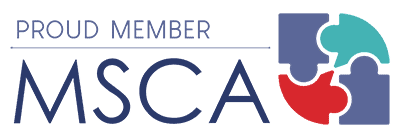Montessori education has been around for over a century, and it is found in almost every country across in the world. So what is Montessori education, and why is it so popular? In this blog post, we will discuss the history, philosophy, and methods behind Montessori education. We will also take a look at some of the special materials that are used in Montessori classrooms. If you are considering enrolling your child in a Montessori school, or if you just want to learn more about this unique form of education, then this blog post is for you!
Montessori education was founded by Dr. Maria Montessori, an Italian physician and educator. Dr. Montessori developed her educational philosophy based on her observations of children in their natural environment. She believed that all children have a natural desire to learn and that they should be given the freedom to explore their surroundings and discover new things at their own pace.
The Montessori philosophy of education
The Montessori method is based on three main principles: respect for the child, the prepared environment, and the use of special materials. In a Montessori classroom, children are given the freedom to move around and explore. They are also given opportunities to work with specially designed materials that help them learn new concepts.
Montessori education is often criticised for being too permissive and chaotic. However, Montessori classrooms are actually very organised and structured. The teacher’s role is to provide the materials and opportunities for learning, but it is up to the child to choose how they want to learn. This hands-on approach to learning allows children to develop at their own pace and learn in a way that is best for them.
Key elements of the Montessori educational method
1. Individualised Education
One of the key elements of the Montessori educational method is that it is individualised to meet the needs of each child. The Montessori teacher observes each child carefully and designs lessons and activities that are appropriate for that individual child. This helps to ensure that each child is able to progress at his or her own pace and learn in a way that is best suited to his or her learning style.
2. Mixed-Age Classrooms
Another key element of the Montessori educational method is that it utilises mixed-age classrooms. In a Montessori classroom, children of different ages are grouped together. This allows older children to serve as mentors and role models for younger children and also provides opportunities for peer-to-peer learning.
3. Hands-On Learning
Montessori classrooms also utilise a hands-on approach to learning. This means that rather than simply listening to lectures or reading from textbooks, children are encouraged to explore and discover concepts for themselves through hands-on activities. This type of learning has been shown to be more effective in helping children retain information and develop a deeper understanding of concepts.
4. Freedom within Limits
Another key element of the Montessori educational method is that it provides children with freedom within limits. Children are given the opportunity to make choices about their own learning and are allowed to work at their own pace. However, they are also provided with clear boundaries and expectations so that they can learn how to function independently and responsibly within society.
5. Prepared Environment
The Montessori educational method also utilises a prepared environment, which is designed to meet the needs of the child and provide all of the materials and resources necessary for learning. The prepared environment includes both the physical space of the classroom as well as the materials within it. It is carefully designed to promote independence, order and concentration.
6. Well-trained Teachers
Finally, another key element of the Montessori educational method is that it utilises specially trained teachers. Along with a Bachelor of Education or Diploma of Education, Montessori teachers undergo extensive training in order to learn how to effectively implement the Montessori educational method. They must also be able to adapt their teaching methods to meet the individual needs of each child in their classroom.
Montessori Learning Materials
One of the defining features of Montessori education is the use of specialised learning materials designed to encourage hands-on learning, free from adult direction. These materials are designed to stimulate children’s minds, encourage exploration, and inspire independent learning.
Montessori materials generally have special qualities that allow children the opportunity for success in their investigations into abstract concepts such as shapes and sizes.
They also help children develop specific skills and knowledge in a practical, hands-on way. For example, the “Pink Tower” is a set of coloured blocks that are used to teach children about sizes, shapes, and spatial relationships. The “Disks and Cylinders” material helps children grasp concepts such as volume and mass. And the “Movable Alphabet” allows children to begin experimenting with language and literacy by physically interacting with an object while they learn. By working with these and other Montessori materials, children are able to gain a deep understanding of the world around them. In addition, the use of these Montessori materials promotes concentration, coordination, and independence. As a result, Montessori classrooms are often filled with bright, curious, and engaged learners.
Montessori education is a system that strives to nurture the natural curiosity of children. Rather than simply educating them based on theory and facts. Montessori learning also encourages each child’s desire for knowledge and understanding as well as offering respect towards others’ differing opinions and beliefs.
In addition, this curriculum offers an environment in which children can explore without fear; there are no restrictions on what they might try next because everything at school should be possible!
If you are interested in enrolling your child in a Montessori school, or if you just want to learn more about this unique form of education, then please contact us. We would be happy to answer any of your questions.

